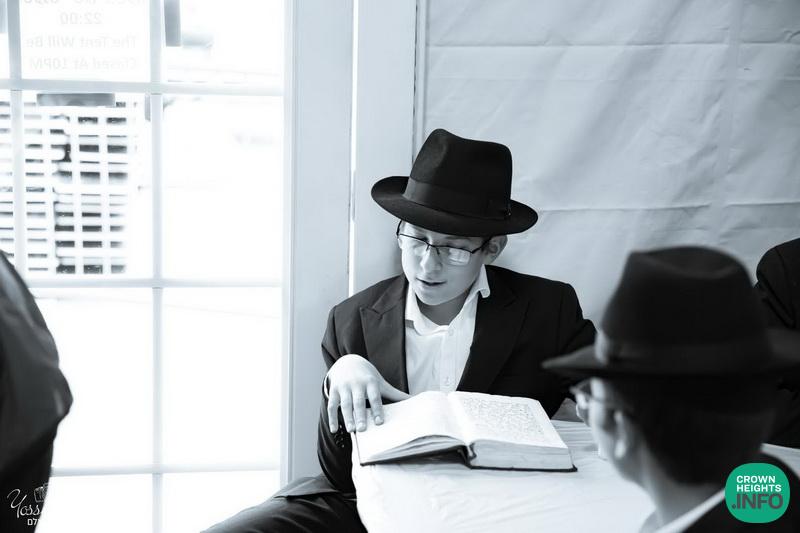
Must I Be At Home on Shabbos Mevarchim?
Question: I am, baruch Hashem, a married yungerman with a few small children at home and I try to do the right thing. When I was a bochur, I never came home on Shabbos Mevarchim and would spend the day in shul saying the entire Tehillim, davening and joining the farbrengen. I continued this custom after my wedding as well. Recently, some people have told me that this is not the right Chinuch approach as my kids are left without a father on Shabbos afternoon. I was wondering if the Rebbe ever addressed this particular Chinuch issue.
Answer: I am very happy that you reached out as this is an important topic that should be publicly addressed. Let us begin with a letter of the Rebbe where he lays down a fundamental principle in Chinuch:
“The education of children begins with the family. In order for the education to be properly administered, the family needs to be a unified unit involved in the atmosphere of Torah and mitzvos which permeate daily life. This is especially true when it concerns the mitzvos that are directly connected to the entire family unit — i.e., the times spent together — which are the days of Shabbos and Yom Tov.” (Igros, Vol. 28 p. 82; #10,285)
The following are letters that deal with your actual question:
- On 6 Tishrei 5715 (1954) the Rebbe sent a letter to Anash and the T’mimim of Kfar Chabad with the following message:
“I have heard a rumor — even though I haven’t thoroughly investigated it — that there is a considerable group of Anash and the T’mimim that have the custom not to eat the main Seudas Shabbos in their homes on Shabbos Mevarchim, i.e., they only return home in the evening or after Maariv:
I am not certain if even in the past such behavior was condoned. While it is true that [the Rebbeim] fought that Chassidim should not have worldly outlooks and mindsets (“balebatishe hanachos”), they also did not want the other extreme to become an official and set policy. While it is true that at times one needs to go “out of their keilim” (do something a little extreme) for otherwise the inner light can become dim and one needs to refresh themselves. Still, this type of mesiras nefesh behavior is not the day-to-day and regularly appropriate behavior.
So in regards to this specific issue: If you listen to my opinion, I’d recommend that the farbrengen should be arranged in a way that everyone can bring the light of the farbrengen to their house on Shabbos itself. This can even be done on the shorter winter Shabbosim. Anash will eat their main meal at home and tell their families about the general concept of Shabbos Mevarchim and the uniqueness of this specific one.
It is my hope that this will inspire the women and girls to arrange — from their part — a farbrengen on Shabbos Mevarchim or on Motzei Shabbos.” (Igros, Vol. 10 p. 3; #2968)
- “It is imperative that the joy of Shabbos and Yom Tov should not just be felt in shul but also in the homes of each member of Anash…It is understood that I am referring to all Anash, so you can share this idea with everyone. You can add that it is certain that I do not want people to begin involving themselves in worldly pursuits or mindsets, and on the contrary: Chassidus demands davening at length and farbrenging, but it also demands that the family should also be part of all the above.” (Ibid, p. 61; #3023).
SPENDING YOM TOV AWAY FROM THE FAMILY
- “Regarding your question: It is the Jewish custom that a one spends Pesach with his family (and at his home). This is especially true in regards to the man of the house (husband/father). In addition that it is very difficult to keep the highest kashrus standards when you are away.” (Likkutei Sichos Vol. 37 p. 150)
- “Regarding your question about traveling here (=to the Rebbe) for a few weeks which would include Pesach: it is not a good idea as the Jewish custom is to — whenever possible — spend Pesach with the family.” (Igros, Vol. 10 p. 310; #3265).













Sara
It’s nice in theory but in Crown Heights, men think they belong in 770 all day! And the woman are stuck all by themselves in small cramped apartments!
Mushkie
I am confused by the quotes from the Rebbe, when he himself would farbreng on shabbos mevorchim plus many other shabbosim, keeping everyone away from their homes and family, often till the end of shabbos, without anyone including Rebbe eating seudas shabbos! Clearly his actions contradict his writings?!
Not at the time of Shabbos seuda
Since the Rebbetzins passing there was a farbrengen every shabbos, 1.30 till 3pm. So it is always possible to arrange shabbos study before or after that